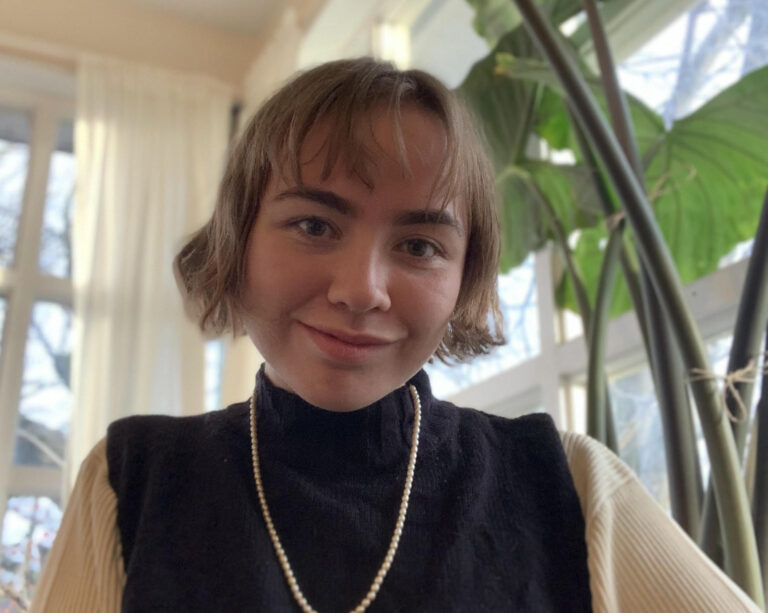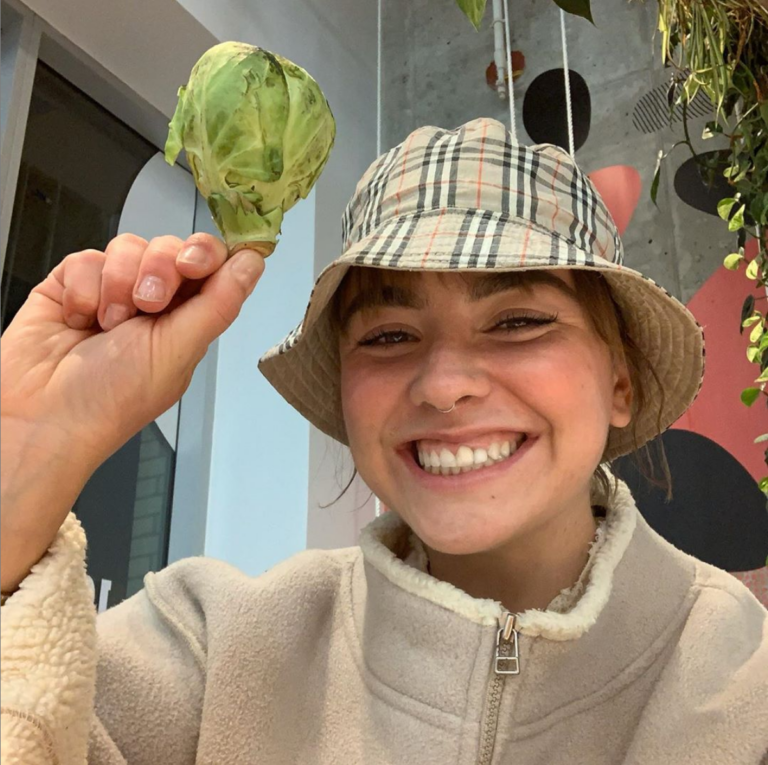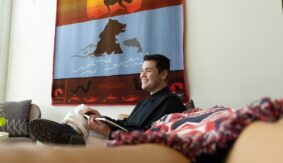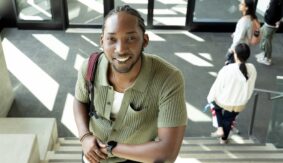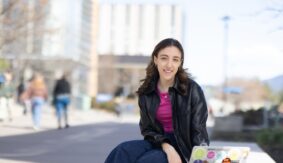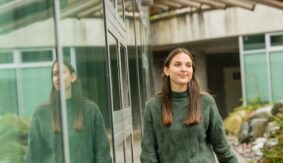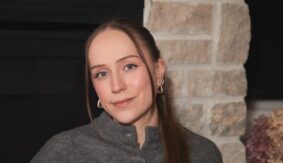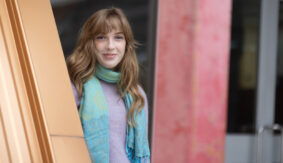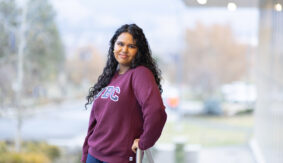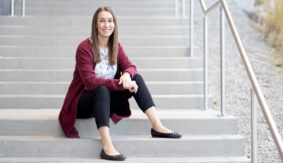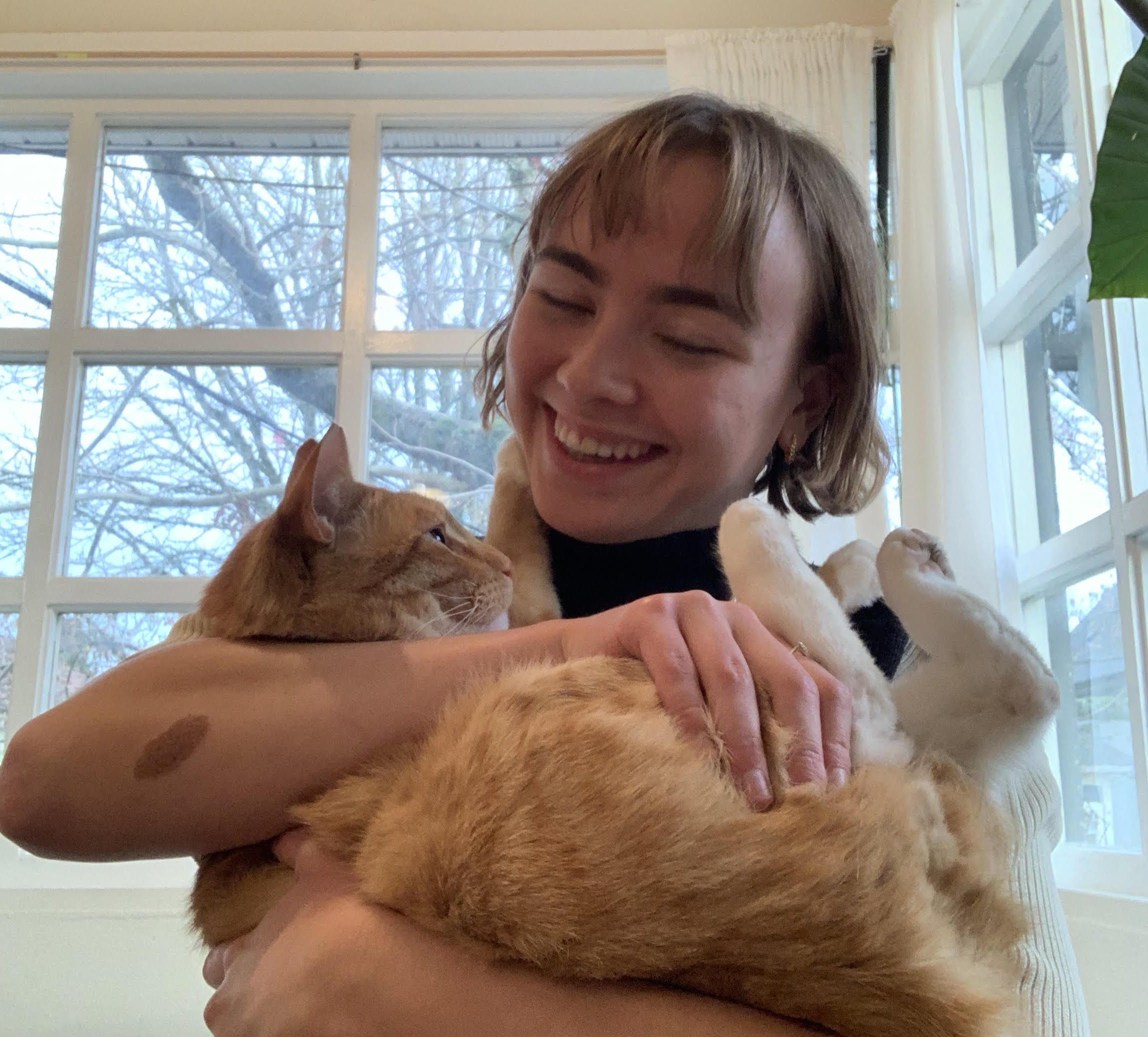
Bryna was searching for a science degree that would help her pursue her interests of social justice and the natural world. She discovered Applied Animal Biology.
Bryna came to the program with the ultimate goal of being a vet. Along the way, she discovered that her degree allowed her to explore a wide selection of courses in the Faculty of Land and Food Systems, including animal welfare, food security and sustainable agriculture, and coordinating events for her community. During her program Bryna has been able to develop her high school interests while building a tight-knit circle of friends, and when she graduates, she’s excited to use her hands-on experience in a career that helps others.
What was your path to UBC Vancouver?
The first time I visited Vancouver was in high school and this was the first time I wanted to apply to UBC. The city was so beautiful and immersed in nature, and having the ocean so close by was a huge draw. UBC’s Vancouver campus is just as beautiful as the rest of the city – if not more beautiful. Even if I’ve had a bad day, the beauty of the campus is always enough to cheer me right up.
What academic subjects were you interested in during high school?
In high school, English and Social Studies were important to me since those classes connected me to current events and social justice issues. On the other hand, I found so much enjoyment in my Biology and Chemistry classes, as they encouraged curiosity about the natural world. Ultimately, I was interested in having a career related to veterinary medicine or animal welfare, and so I wanted to pursue a science degree.
What were your interests more generally in high school?
Outside of school, I was still super interested in animal medicine and welfare, and I was able to take college courses alongside my high school classes to become a certified veterinary technical assistant. While that took up a lot of time, it was something I was super interested in, and still am. Apart from that, I had a lot of fun gardening with my mom, playing field hockey, and going to local concerts with friends!
How did you find out about the Applied Animal Biology degree at UBC?
I did some googling about pre-vet programs in Canada and found the Applied Animal Biology program within the Faculty of Land and Food Systems at UBC! I was able to read the profiles of current students and professors in the Applied Animal Biology program, which got me even more excited about applying, as I resonated with many of their stories.
What attracted you to apply to that particular degree?
I knew this was the program for me since it was a science degree that gave me the opportunity to study more social aspects, like animal welfare and food security. I was excited that what I’d be learning could keep me engaged about social justice topics that I was interested in in high school. The Faculty of Land and Food Systems at UBC is also a smaller Faculty, and offers a tight-knight community which I was excited about, since I thought it would be easier to meet friends and get to know profs (and I was right!).
How has your degree helped you to develop the interests and passions that you had in high school?
I think if my high school self got a glimpse of what I’m doing now, she would be really proud. The Applied Animal Biology program in the Faculty of Land and Food Systems has allowed me to expand on all my general interests. I’ve been able to focus on specific areas I wanted to increase my understanding in like wildlife rehabilitation, and I’ve gained relevant hands-on experience in the field. The skills I learned from taking those college courses in high school have also given me unique insight in some of my classes. As well, I’ve developed my interest in gardening into a passion for sustainable agriculture and food security, especially in the context of mitigating climate change and a feeding a growing global population.
My program has taught me to be adaptable and curious, and that has led me to many fulfilling jobs and experiences throughout my degree.
What do you hope your degree will allow you to do in the future?
My one goal in high school was to go to vet school. While this remains a desire of mine, the Applied Animal Biology program has expanded my goals and interests to many fields. I’ve adopted passions for wildlife rehabilitation, animal welfare, sustainable and urban agriculture, and also for coordinating event logistics and connecting with members of my community! My program has taught me to be adaptable and curious, and that has led me to many fulfilling jobs and experiences throughout my degree.
In your opinion, what makes the Faculty of Land and Food Systems distinctive from other Faculties?
The opportunity for hands-on learning experiences sets the Faculty Land and Food Systems apart at UBC. Students in the Faculty take courses where they learn to partner with local organizations and schools to do community projects. There are also different practicums offered, which offer job experience in the field: I’m currently taking the Applied Animal Biology Practicum, where I spend three days a week at the Wildlife Rescue Association of BC. I work in their wildlife hospital and on their helpline, learning about performing intake exams and creating treatment plans for birds in our care, as well as developing a strong understanding of human effects on wildlife on how we can work to help reduce them.
What would you say to prospective students who are considering applying to a degree in the Faculty of Land and Food Systems?
If you are someone who is science-oriented, and who also cares about social justice issues like Indigenous food sovereignty, climate change’s impact on rural livelihoods, or even how your local community garden can be more accessible to all, a program within the Faculty of Land and Food Systems is definitely for you. It’s also a smaller Faculty at UBC, which means there are so many opportunities to make connections. I find that in my Faculty of Land and Food Systems courses, it’s been much easier to make friends and form good relationships with professors compared to courses I’ve taken in other Faculties at UBC.
What’s the best part about studying at UBC?
The friends and relationships I’ve made throughout my journey at UBC have definitely been the best part about studying at here. Friends, teammates, coworkers, profs, and supervisors have all played a role in shaping me into who I am today and introducing me to new interests and opportunities. I’m so thankful for every last one of them, as they’ve completed my UBC experience and made it all worthwhile.
